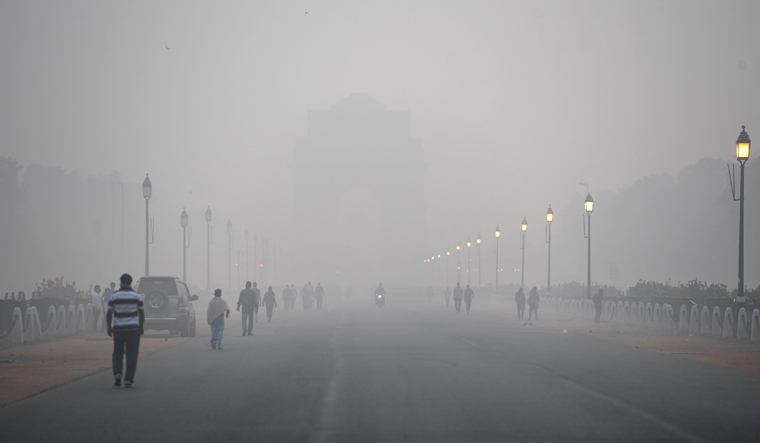Human health is severely impacted by air pollution, particularly when it reaches levels as high as is the case in the capital. Studies and health professionals believe that breathing in toxic air can impair brain function and negatively impact mental health, which can be exacerbated by limiting outdoor activity and changing daily routines, a report published in The Hindustan Times said.
Although researchers and scientists have not yet fully concluded how breathing in contaminated air affects the human brain, studies indicate that pollution probably has an impact on the area of the brain that controls hormones that regulate emotions, either causing or exacerbating conditions like anxiety, depression, and memory loss, the HT report added.
While research is still in its early stages, Dr Nand Kumar, a professor of psychiatry at the All India Institute of Medical Sciences (AIIMS), noted that prolonged exposure to toxic gases and particulate matter can cause inflammation in the brain regions responsible for emotion regulation, such as the prefrontal cortex and the hippocampus.
“Children are more susceptible because their brains are still developing. Several research studies have established a link between high pollution exposure with anxiety, depression and also memory loss,” Dr Kumar was quoted as saying.
Clara G Zundel, postdoctoral research fellow in psychiatry and behavioural neurosciences, Wayne State University, in a 2022 World Economic Forum report was quoted as saying, “People who breathe polluted air experience changes within the brain regions that control emotions, as poor mental health may relate to neurostructural and neurofunctional changes, and as a result, they may be more likely to develop anxiety and depression than those who breathe cleaner air.”
Until now, a lot of attention has been focused on the negative effects of breathing polluted air on people’s physical health, with respiratory problems being the most common ailment across all age groups. However, breathing polluted air also forces people to spend a lot of time indoors, which can indirectly lead to anxiety or insecurity, even in otherwise healthy adults, says Dr Om Prakash, deputy medical superintendent and professor of psychiatry at the Institute of Human Behaviour and Allied Sciences (IHBAS).
Dr Prakash told the paper, “During high pollution days, a lot of our daily activities are restricted, which includes something as basic as going for walks or going grocery shopping. While a day or two is fine, Delhi and the neighbouring towns often record extremely high pollution levels for days together and that can have indirect impacts on a person’s mental health.”












